What to eat when pregnant: Diet for a healthy pregnancy
Discover what to eat to ensure you stay fit and healthy throughout your pregnancy
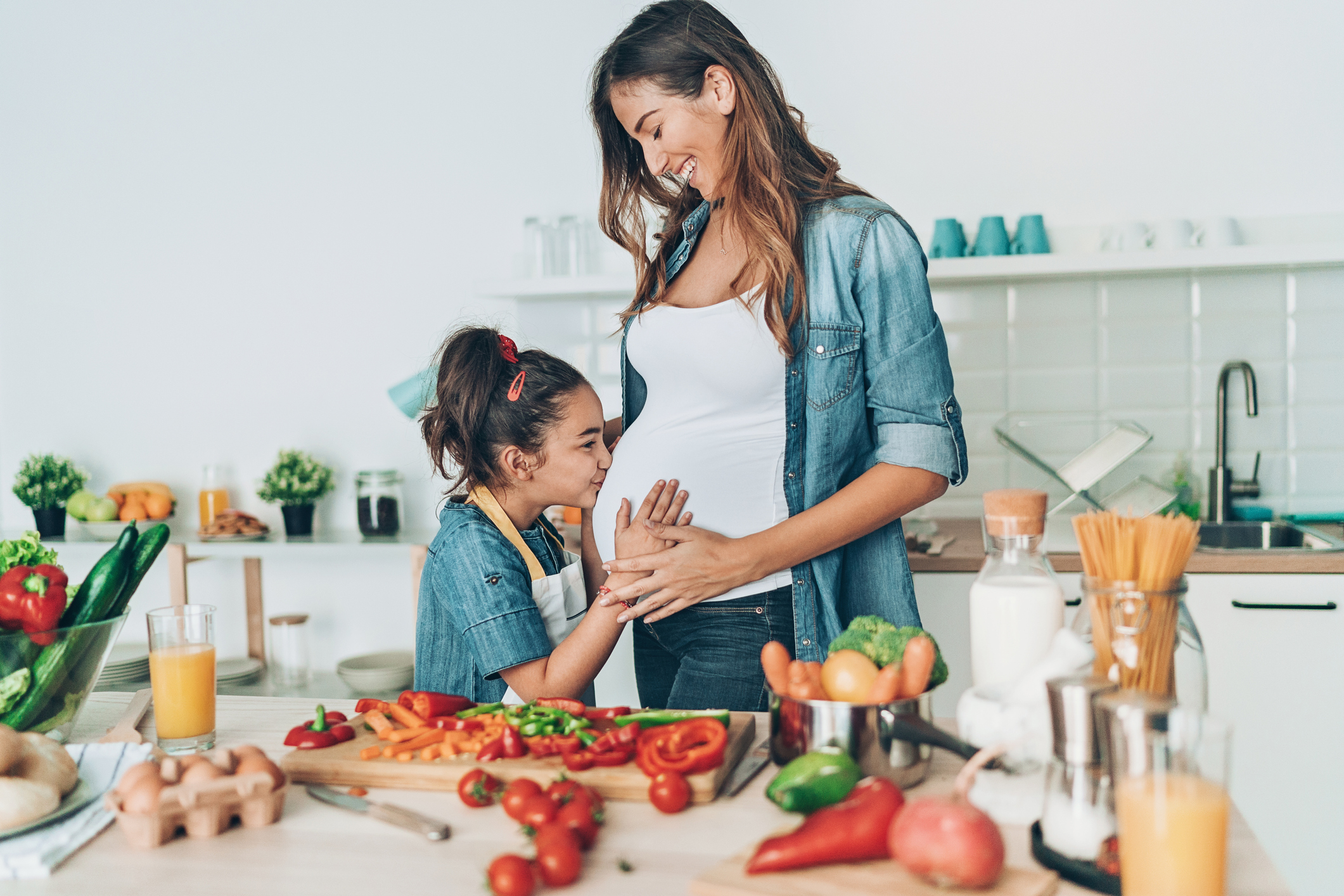
Knowing what to eat when pregnant can feel overwhelming. You want to pick the right foods for you and your baby, but conflicting advice can often cause confusion.
This can be especially the case if it's your first pregnancy, too. And, regardless of whether you're plus size and pregnant or straight sized and pregnant it's helpful to understand which foods you should avoid when pregnant and your pregnancy cravings.
But, don't worry. That's why we've done the research for you and listed everything you need to know about what to eat when you're expecting. And it's no wonder you want to get things right, as eating well when pregnant is essential. "The food you eat fuels your body and your body fuels your baby," says Melinda Nicci, founder of health and wellbeing app Baby2Body.
"Your diet does have a direct impact on your health, as well as your baby’s health," adds Melinda. "Research shows eating a nutritious balanced diet during pregnancy is linked to good cognitive development, healthy birth weight, and can reduce the risk of many birth defects. Your body can’t properly support you or your baby without all the essential nutrients it needs."
From golden rules about what you should be eating, to the truth about nuts and even a handy guide on what you should be eating more of during certain periods of your pregnancy, we've got everything you need to eat for you and your baby covered.
What to eat when pregnant
"Eating a nutritious and healthy diet when pregnant is imperative," says Dr Giuseppe Aragona, GP and online doctor for PrescriptionDoctor.com. "Ensuring you eat enough fruit and veg and drink enough water throughout the day is super important to ensure that your baby develops at the normal rates."
Plus, eating well is also good for you, not just the baby. "A good diet can also help to reduce the risk of anaemia. And other symptoms of pregnancy, such as fatigue and morning sickness," says Dr Aragona.
Parenting advice, hot topics, best buys and family finance tips delivered straight to your inbox.
Our experts recommend you eat the following when pregnant...
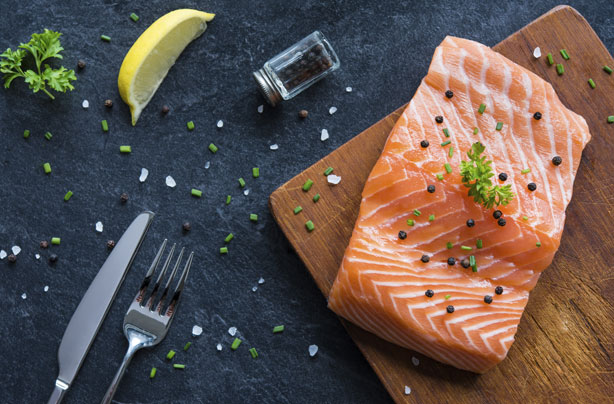
Salmon
The NHS recommends that pregnant women eat "two portions of fish a week, one of which should be oily fish such as salmon, sardines or mackerel." Fish is a great source of protein, and salmon, sardines and mackerel also contain healthy omega-3 fatty acids - known to contribute to healthy brain function and aid the heart, joints and general wellbeing.
"Salmon will help support you and your baby’s growth," says Dr Aragona. "Two meals per week with salmon is the recommended amount."
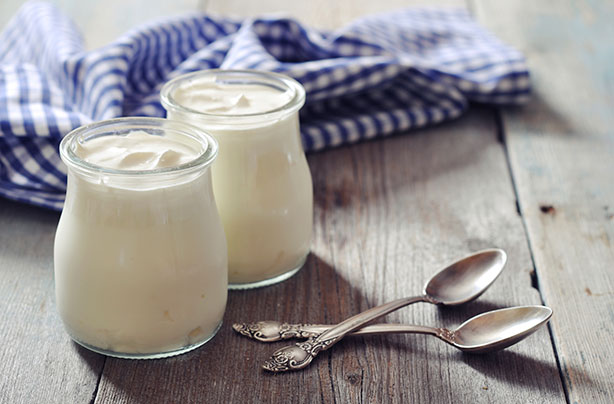
Greek yogurt
We all know how important calcium is for strong and healthy bones, and for you and your baby this starts before they've even arrived in the world. Greek yogurt is good for you and a great option for pregnant ladies because not only does it have twice the protein of normal yogurt, but it's also a great source of calcium.
"The goal during pregnancy is to make sure you provide everything your baby needs without sacrificing your own health and nutrition," explains dietitian Kate Geagan to Baby Center. "Calcium will help keep your own bones intact while laying down a healthy skeleton for your baby."
And that's not all. "Greek yogurt is also a good source of B vitamins, probiotics and phosphorus," says Dr Aragona. "You can eat a portion a few times a week with some berries and honey for good measure."
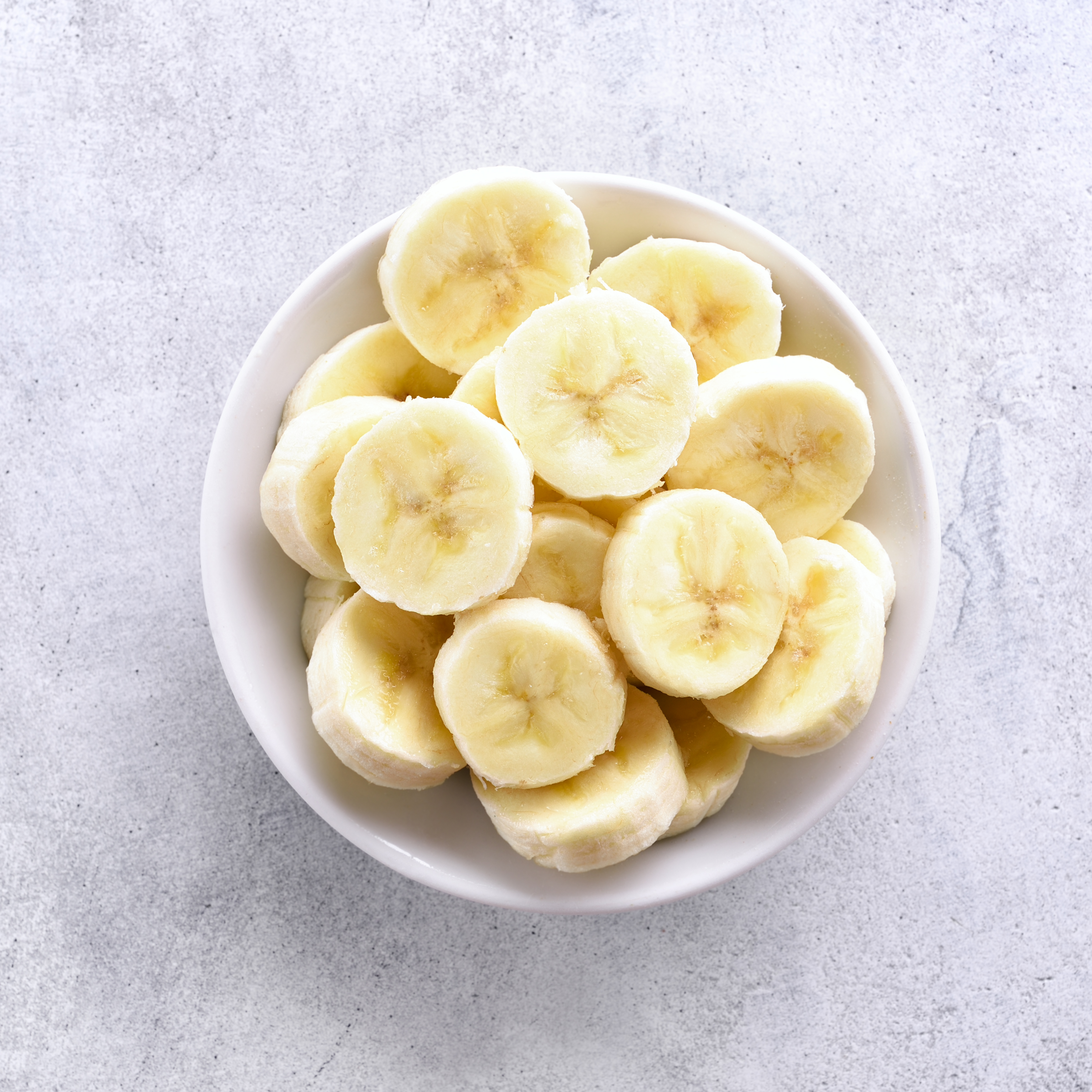
Bananas
These are great for pregnant ladies, particularly in the first trimester explains Anar Allidina, a registered dietitian, for Huffington Post. "Having bananas during the early weeks of pregnancy may help with nausea that many women experience," says Anar.
And that's not the only benefits. "Bananas are a good source of potassium," says Dr Aragona. "Constipation is common during pregnancy, so bananas are good to have as they contain vitamin B6, vitamin and fibre to help regular bowel movement - so are a natural way to help constipation. One banana a day is fine to have.'
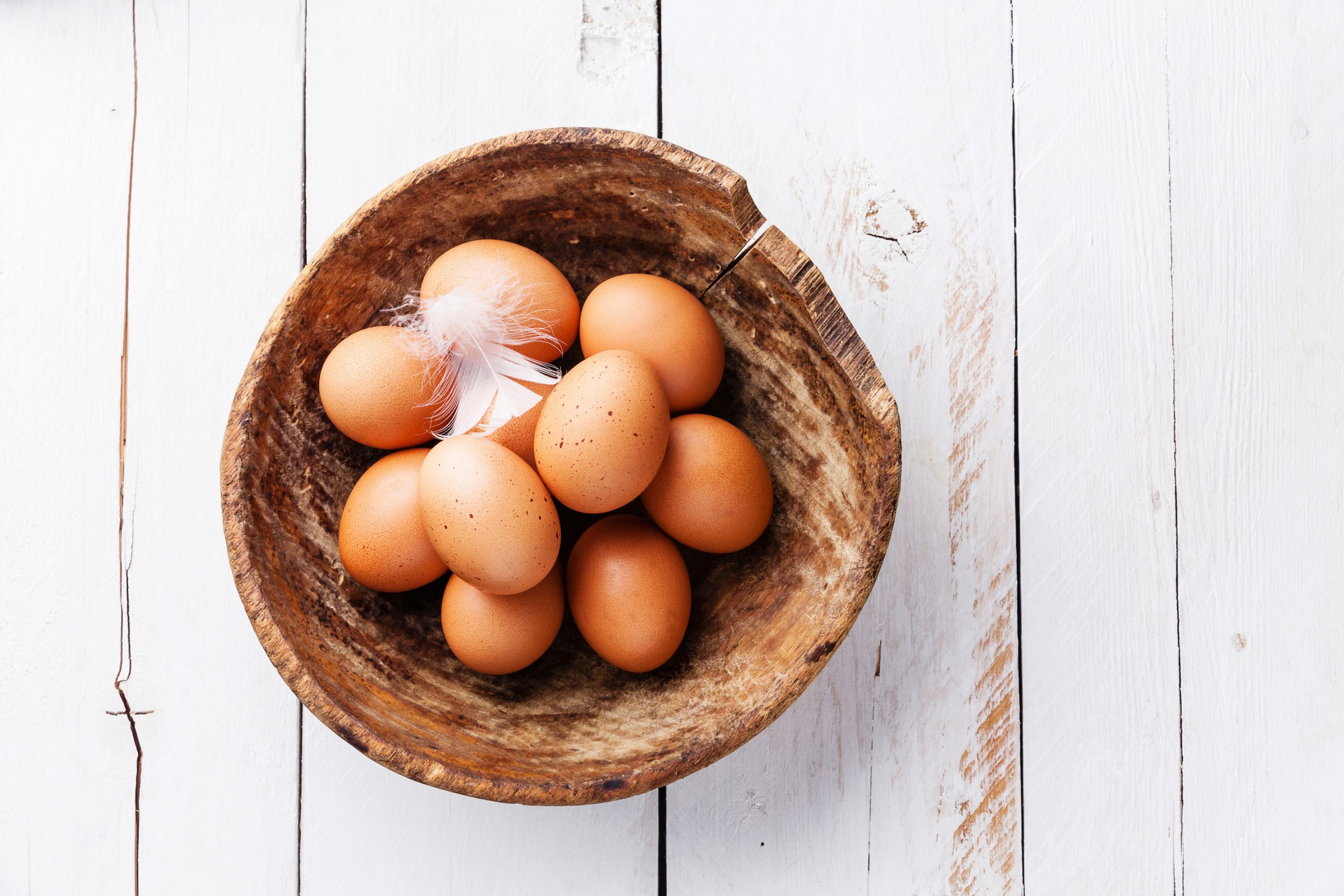
Eggs
"Eggs are good for you because they contain a large number of vitamins and minerals. This includes choline, needed for baby’s brain development," says Dr Aragona. "You can have up to two eggs a day during pregnancy."
They are also a great source of protein, but you do need to take care. It's important to note that raw eggs can cause food poisoning, which is particularly dangerous for expectant mothers.
Therefore, it's best to avoid:
- Raw eggs
- Eggs with runny yolks
- Any food that contains raw eggs and is uncooked or only lightly cooked
"Avoid raw or partially cooked eggs, duck, goose or quail eggs unless cooked thoroughly until the yolk and whites are solid," says Dr Aragona. "This is so you do not run the risk or getting salmonella, which could cause food poisoning."
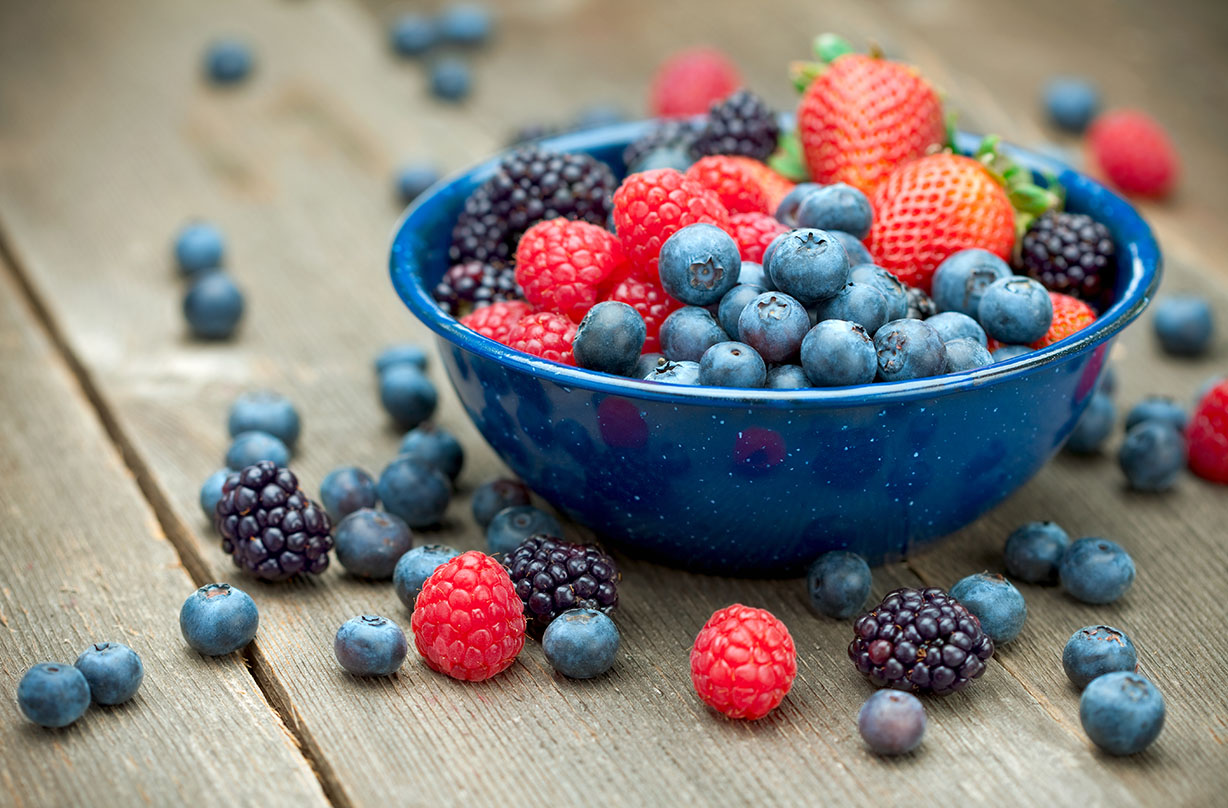
Berries
Berries are packed with vitamin C, potassium, folate (a B vitamin you need to make red blood cells) and fibre. 'Blueberries, especially, are antioxidants so are a good food to have in your pregnancy diet,' says Dr Aragona. 'You can have a handful a day in your morning porridge or yogurt.'
It is important, however, to make sure you wash them carefully before eating.
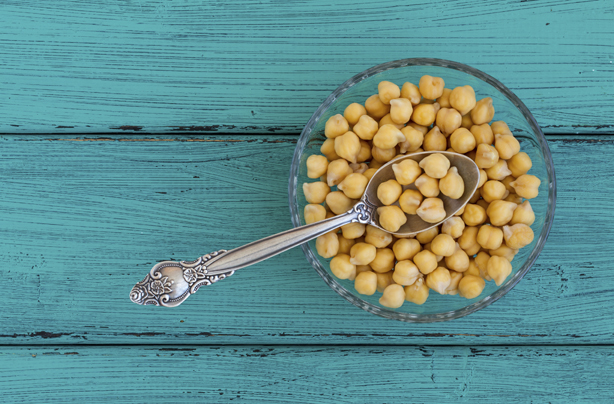
Beans
Chickpeas, lentils, black beans and soybeans are all great sources of fibre, protein, iron, folate, calcium and zinc. Beans contain more protein and fibre than veggies and, considering pregnant women need about 70 grams of protein per day, you might want to think about stocking up on the beans!
'Beans are a great source of fibre and also contain key nutrients such as folate, iron, calcium and zinc,' says Dr Aragona. 'You can have a portion of beans a day, perhaps mixing it up and trying different types of beans with each meal.'
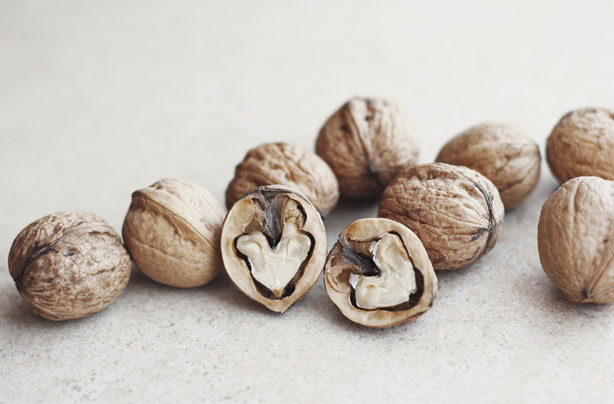
Nuts
Official advice used to be that women should avoid peanuts during their pregnancy, but this was only if there was a history of allergy in the family. It's now safe to eat all types of nuts when pregnant.
'Nuts are a source of omega-3 fatty acids and protein,' says Dr Aragona. 'Snacking on nuts can help to fill you up between meals and also give you the nutrients you need.'
And that's not all. Nuts are also full of important minerals such as copper, manganese, magnesium, selenium, zinc, potassium, calcium and vitamin E, making them a great on-the-go snack!
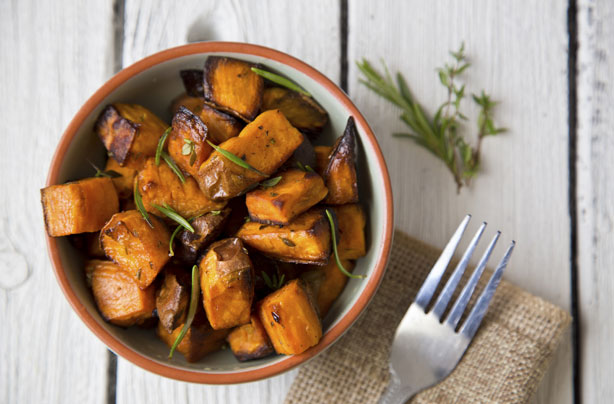
Sweet potato
'This is a source of vitamin A which is important for the growth cells in your baby,' says Dr Aragona. 'They also contain a lot of fibre which is good for digestive health and can reduce blood sugar spikes.'
The reason why they are so good for vitamin A is that sweet potatoes get their orange colour from something called carotenoids, which are plant pigments that are then converted to vitamin A in your body. They also contain vitamin C, which helps you absorb the iron essential for the good health of your baby during pregnancy.
'You can have a few portions of sweet potato in a week as long as you pair it with other food groups within each meal,' adds Dr Aragona.
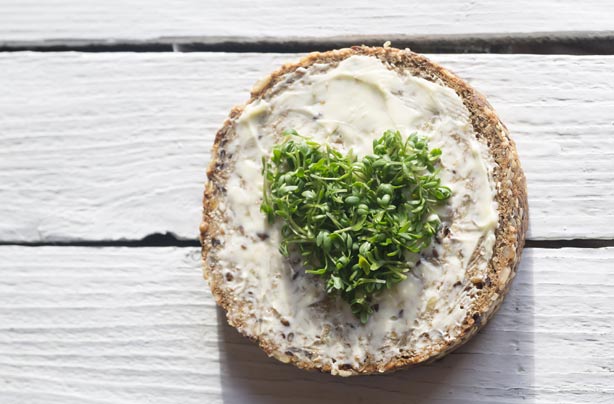
Wholegrains
Grains (whole wheat, oats, rice, corn and barley) are packed full of nutrients like iron, selenium, and magnesium. They're also an especially good source of the B vitamins (including B1, B2, folic acid and niacin) your growing baby needs. "Wholegrains are full of nutrients such as magnesium," says Dr Aragona. "Iron and selenium and are also a good source of B vitamins, which are essential for your baby’s growth."
Wholegrains in particular - wholewheat bread or brown rice, for example – are best as they contain the most fibre, vitamins, and nutrients.
Not sure how much to have? "The recommended amount of fibre a day during pregnancy is 28 grams a day," adds Dr Aragona. "Plus, it has been advised that you make at least half the grains you eat each day wholegrains."
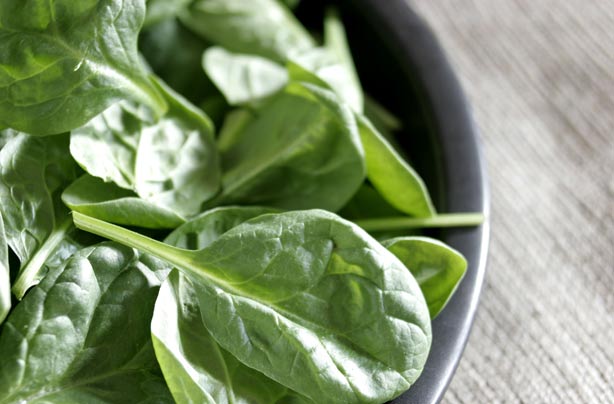
Leafy greens
Dark green leafy veg (like spinach, kale and Swiss chard) is packed full of vitamins and nutrients, such as vitamins A, C and K, as well as the all-important folate we mentioned before. These vitamins promote eye health, so it's essential you get your daily intake right.
"You should be eating 2 cups of fruit and 2-3 cups of vegetables a day when pregnant," says Dr Aragona. "Broccoli and dark leafy greens are packed with vitamin C, K, A and calcium, iron folate, fibre and potassium, so they are a great way to ensure you are packing in the vitamins and keeping your digestive system in check."
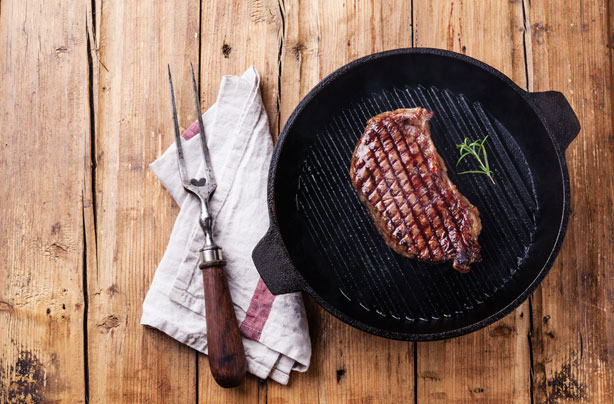
Lean meats
We're going to talk about protein again! You can make lean meats a great source of your daily protein intake, as it contains the vital amino acids you need for healthy cells in yours and your baby's body. "Look for lean meats with the fat trimmed off", says Karin Hosenfeld of North Dallas Nutrition. "When buying red meat in particular, look for cuts that are around 95 to 98% fat free."
Lean meat when pregnant really is essential. "You should increase your protein intake to 6.5 oz per day when you are hitting the second and third trimester," says Dr Aragona.
Remember, do not eat raw or undercooked meat, including meat joints and steaks cooked rare, as there is a risk of toxoplasmosis, an infection which could affect the baby.
Some golden rules for what to eat when pregnant
According to the NHS, although you don't need to go on a specific 'pregnancy diet' it's important to make sure you're getting the right balance of nutrients for you and your baby. Some other rules to remember:
- Even if you're hungrier than usual, you don't need to 'eat for two' 'This is an outdated recommendation,' says Melinda. 'You should be gaining weight during pregnancy. But most women only need about 100 extra calories a day in the first trimester and about 300 extra a day during the second and third trimester to maintain a steady weight gain. Just make sure those calories are coming from healthy, nutritious foods.'
- Make sure you eat a healthy breakfast every day This will help you to avoid snacking on foods that are high in fat and sugar.
- Always consider taking supplements It's best to get vitamins and minerals from the foods you eat, but when you're pregnant you need to take some supplements as well, so you know you're getting everything you and the baby needs.
- Starchy foods (carbs) should make up just over a third of what you eat 'Carbohydrates are an important food group to incorporate during pregnancy as they are made up of starches, sugars and fibres and these give you your main source of energy which is vital during pregnancy,' says Dr Aragona. 'These starches and sugars break down into glucose which pass across the placenta and provide energy to support the growth of your baby during pregnancy.' Choose wholegrain instead of processed (white) kinds, or potatoes with their skins on.
- Wash fruit, vegetables and salads This will remove all traces of soil, which may contain toxoplasma, a parasite that can cause toxoplasmosis.
What is the best food to eat during pregnancy?
The best food to eat during pregnancy depends on the trimester you are in.
"The best foods to eat for the first trimester are lean meats, as these are a good source of iron and protein," says Dr Aragona.
"Yogurt is key as the calcium and protein will support bone structure, while edamame bean pods are packed with vegetarian protein, calcium, iron and folate and are a great food to snack on throughout the day."
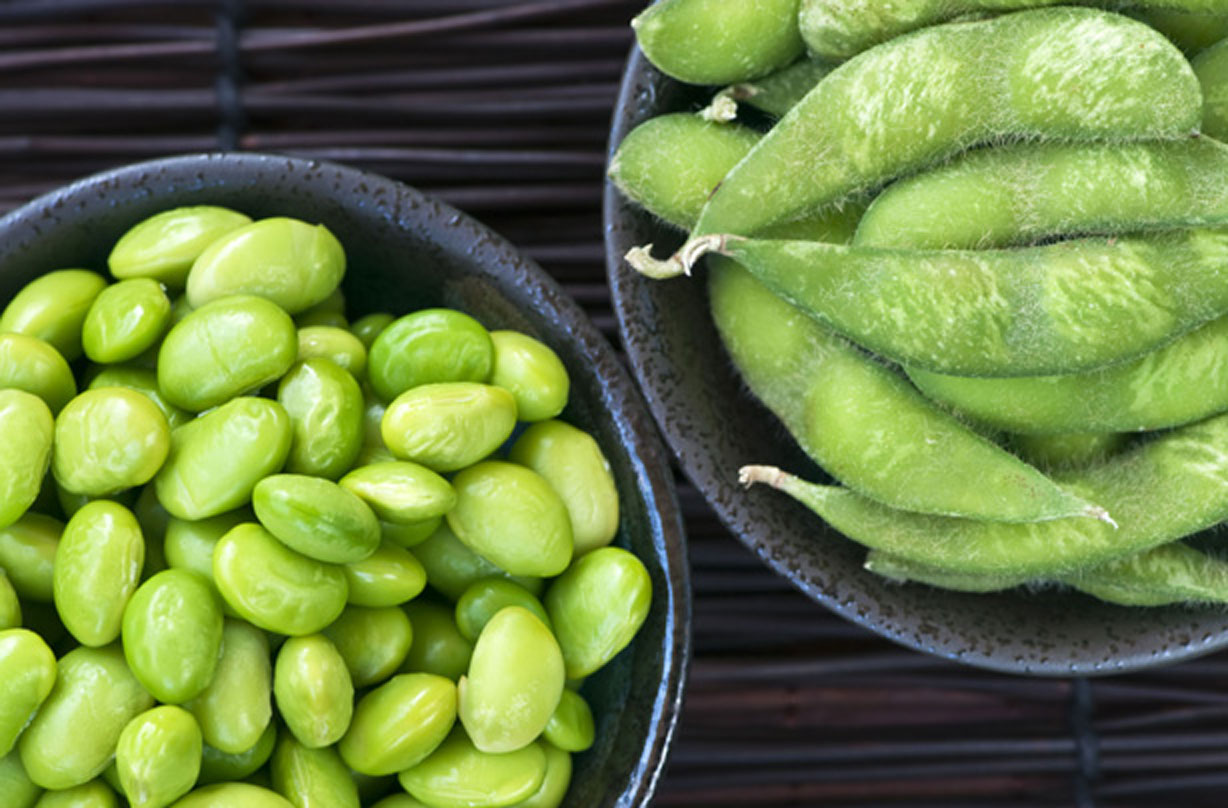
And that's not all. "Kale is also a good food to have as it includes fibre, calcium, folate, iron, vitamin A, C, E and K. Plus, bananas, beans and lentils are a good general food to have throughout pregnancy as they are full of iron and fibre," says Dr Aragona. "Ginger products, such as ginger tea or ginger chews, will reduce any nausea in the first trimester."
In the second trimester? "The second trimester is pretty similar to the first in terms of what you should be eating," says Dr Aragona. "You want to ensure you are eating enough food and getting the vital nutrients you need to support your baby’s growth development during this second trimester. You should increase your protein intake, so lean meats, nuts, tofu, eggs, fish and lentils are good foods."
Reached your third trimester? "Vitamin C, K, fibre and vitamin B1 are really important," says Dr Aragona. "You should be getting these nutrients if you are having a varied and healthy diet. You should also be aware that in the third trimester you should be eating 200-250 calories more a day."
Which foods are safe during pregnancy?
"Any food that isn’t explicitly listed as unsafe by medical professionals should be considered relatively safe. But talk with your doctor about any concerns regarding specific foods you might have," says Melinda.
"You can develop allergies at any point in time. So, it is possible a food that is considered safe and that you have eaten throughout your life could cause an allergic reaction." You need to remain cautious, but try not to worry.
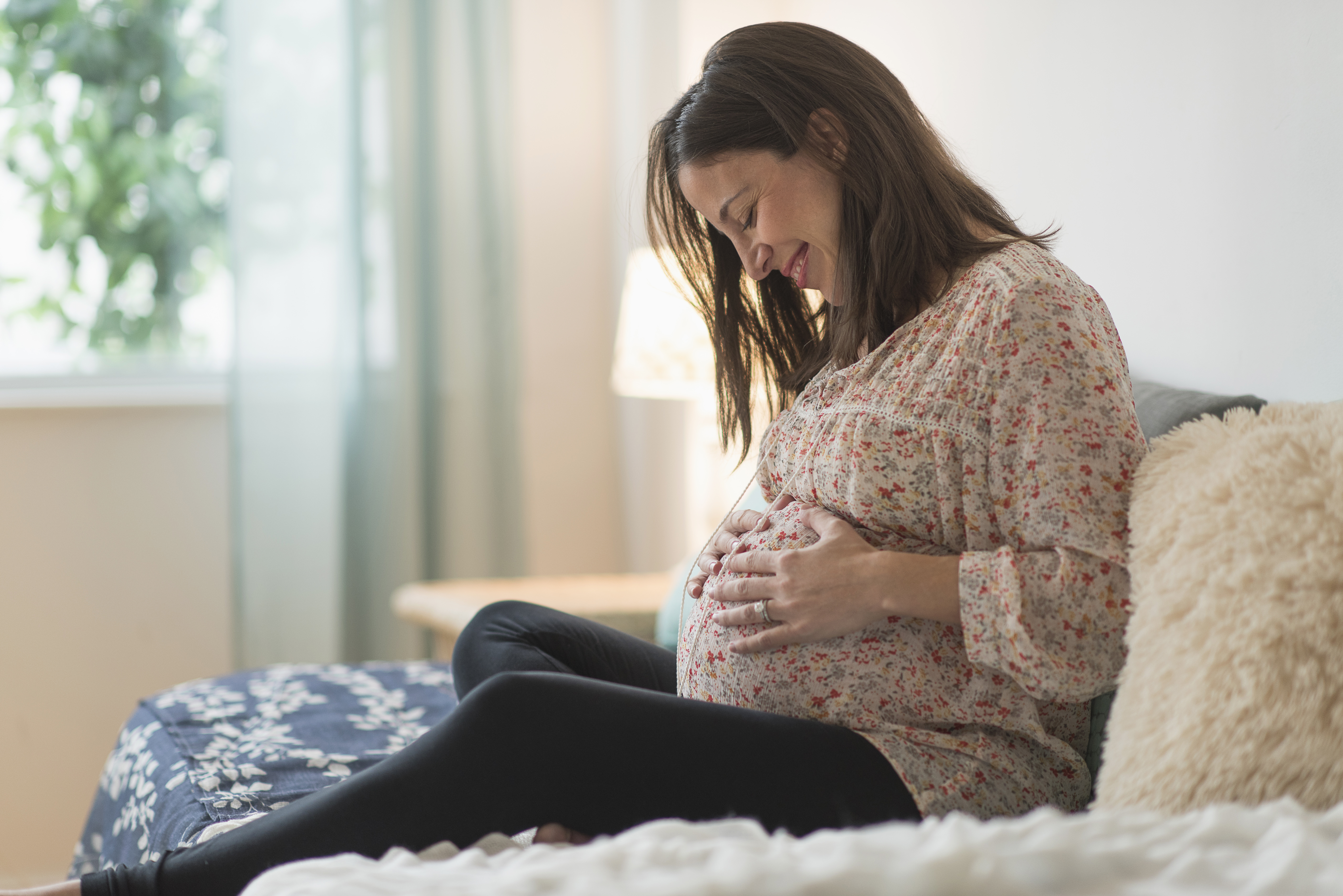
"Luckily most foods are safe to eat during pregnancy," says Dr Aragona. "Seafood can sometimes cause confusion, however most is fine to eat. You can have cooked fish and seafood. Plus smoked fish, such as smoked salmon and trout. You can also have raw or lightly cooked fish in sushi, if the fish has been frozen first. Cooked shellfish, such as muscles, crab, lobster, scallops, prawns and clams are fine, as are cold pre-cooked prawns."
Knowing which foods are not safe is often just as important.
- Dairy 'Avoid soft cheeses with a white coating on the outside, such as brie or camembert. Also avoid soft blue cheeses unless cooked until steaming hot,' says Dr Aragona. 'And avoid any unpasteurised cow’s milk, goats’ milk or sheep’s milk. Plus, any foods made from unpasteurised milk such as soft goats’ cheese. This is because unpasteurised dairy products may contain listeria. This is a bacterium that can cause an infection called listeriosis which could lead to miscarriage or stillbirth.'
- Meat 'Hot dogs and deli meat is very similar to unpasteurised cheeses,' says Melinda. 'These foods may contain bacteria that could make you sick, they also tend be high in processed meat and saturated fats.' Always make sure meat is cook properly.
- High mercury fish 'Be wary of swordfish, king mackerel, bigeye tuna, orange roughy, and tilefish,' says Melinda.
- Alcohol 'This can lead to birth defects and complications,' adds Melinda.
What to eat for certain periods of your pregnancy
First Trimester
What to eat when 1-4 weeks pregnant
'During the first trimester, your baby is very small. This means there’s not a huge difference in calorie intake (about 100 calories extra or so per day),' says Melinda. Folic acid is essential during this period, and ideally should be taken for six weeks before you conceive. In the first 28 days of pregnancy, there's lots of cell division in the embryo, and neural tubes are developing.
Folic acid reduces the risks of spina bifida, birth defects, miscarriage and low birth weight. You should take a folic acid supplement of at least 400mcg daily throughout your pregnancy, as it's difficult to get enough from food alone.
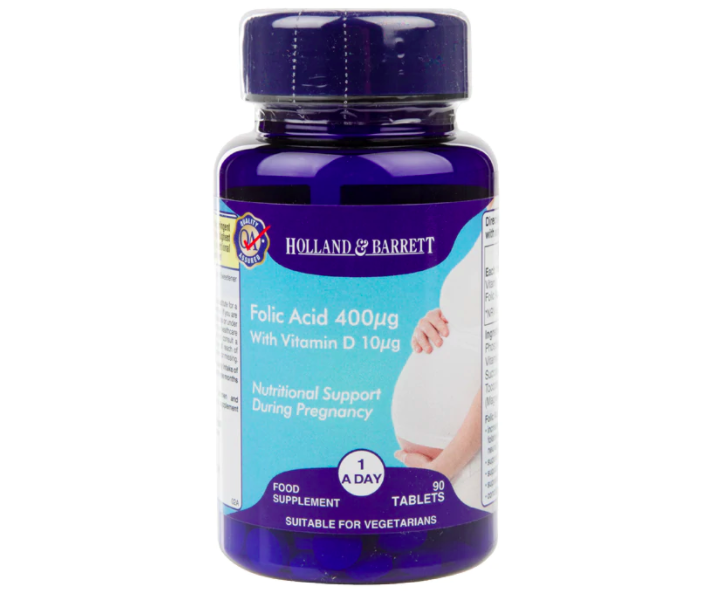
During these early days, the inner-layer cells of the embryo will become your baby, and the outer layer of cells the placenta. Research shows that the growth of the placenta is directly linked with the mum's food intake and that a healthy, well-nourished woman builds a better placenta.
The placenta is the nutrition highway between you and your baby. So you need to ensure your diet is packed with nutrient-dense fresh and unprocessed foods.
If you haven't already, now is the time to cut out all the nutrient-zappers such as alcohol, cigarettes and caffeine. Toxins from these can pass through the placenta to your baby.
What to eat when 5-12 weeks pregnant
During the second month, you may start to experience nausea and food aversions or pregnancy cravings. Trust your instinct on this, as you may just be hankering after what your baby needs, eg, steak = iron, or milk = calcium.
You can help reduce the effects of morning sickness by increasing your levels of zinc and vitamin B6. Sip ginger tea and snack on nuts and seeds.
Feeling exhausted is a major complaint during this time, and it's not surprising with all that's going on inside you. To ease this feeling of fatigue, choose energy-givers rather than energy-sappers.
Switch from all white refined foods such as bread, rice and pasta to wholemeal bread, brown rice and wholemeal pasta, as these help to balance blood-sugar levels. Avoid sugary foods and caffeinated drinks, and try to eat every four hours. Drink plenty of fluids, including water and fresh vegetable juices. And take that afternoon nap when you can.
'Maintain all the daily vitamins and minerals you need daily. Plus, go for lean meats, beans and lentils, greek yogurt, leafy greens like spinach or kale and bananas,' says Melinda.
Second trimester
What to eat when 13-16 weeks pregnant
While the first 12 weeks focus mainly on developing organs, skeleton, tissue and cells, this trimester concentrates on your baby's rapid growth. "Once you move into the second and third trimester, you’ll begin to need about an extra 300 calories per day," says Melinda. That's the equivalent of an apple, a piece of wholemeal toast and a glass of milk. You may be averaging a weight gain of around 1/2-1lb a week.
You can suffer from constipation at any time in pregnancy, as hormones slow down the movement of food in your intestines, to allow more absorption from the food. But as your baby starts to grow during this trimester, she may begin to put pressure on your intestines.
To help move things along, eat plenty of fibrous foods, drink at least 8 glasses of water a day, take up gentle pregnancy exercise such as swimming or walking and avoid caffeine as it dehydrates the body further. If all this fails, soak a dessert spoonful of linseeds in water overnight and drink the liquid every morning until the symptoms have passed.
What to eat when 16-24 weeks pregnant
Your baby's senses are developing now. Hearing develops at 16 weeks, although the ear isn't fully formed until the 24th week, and towards the end of this trimester her eyes begin to open.
Vitamin A plays an important role in visual and hearing development. Vegetable sources of vitamin A, called betacarotene, are the safest. So add carrots and yellow peppers to the menu.
'Whole grains like rice, almonds, eggs, oranges, green leafy vegetables and salmon are all essential right now,' says Melinda.'
Third Trimester
What to eat when 24-28 weeks pregnant
Towards the end of the second trimester, your enlarged uterus takes up space usually occupied by the digestive system. It may push against your stomach. This could be why almost 80% of pregnant women suffer heartburn.
Normally, foods are mixed with gastric acids in the stomach and move on down to the intestines. With the pressure of the baby, however, this acidic mix can move up the oesophagus instead. This causes a burning feeling in your chest.
To avoid further aggravation, eat smaller, more frequent meals. Plus, avoid spicy or fatty foods, carbonated drinks, processed meats, alcohol and coffee.
Try to eat at least 3 hours before bedtime and chew slowly. It's a good idea to sleep with your head raised. This helps prevent the digested contents of your stomach from moving up towards the oesophagus.
'During all throughout your pregnancy, make sure you’re drinking enough water,' adds Melinda. 'Although you might be going to the bathroom what seems like a million times day, your body needs proper hydration right now to support you and baby.'
What to eat when 29-34 weeks pregnant
You're now transferring even more essential fatty acids for your baby's developing brain, more calcium for bones and teeth and more iron to protect against anaemia after birth.
It's important during this trimester to continue to eat a highly nutritious diet otherwise the body transfers all its stores to the baby, leaving you feeling exhausted. 'Sweet potatoes, salmon, kiwi, strawberries, oranges and bananas, nuts, eggs, cheese, avocado and whole grains are all ideal now,' says Melinda.
During this time your baby will double in size and will demand more calories from you. So you should continue to eat around 300 extra calories each day. A steady weight gain is essential, as too little may mean that your baby risks being premature. But gaining too much weight is not advisable, either. Fat cells are laid down and too much excess fat from you could mean that your baby may battle with weight problems for life.
Beware of hidden fats in cakes and biscuits, and remember that sugar turns to fat. So when you snack, it's best to opt for fresh fruit, nuts, seeds and healthy cereal bars.
What to eat when 35-40 weeks pregnant
Giving birth can be like running a marathon in terms of energy requirements. Prepare 2 weeks before you're due by stocking up on complex carbohydrates such as whole grains, vegetables and wholemeal breads, as these are the body's main energy source.
By the end of this trimester your baby weighs about 7lb 5oz, but you may have gained around 28lb. Don't worry! Most of it is fluid, increased blood volume and placenta. Excess fat is needed in preparation for breastfeeding.
Always check with your GP or midwife before you make any changes to your diet or exercise programmes. Your GP, midwife or a qualified nutritional therapist should monitor and supervise supplements.
Anna Bailey has been the editor of GoodtoKnow since 2018. Before joining the team she was Features Editor at MSN UK, where she oversaw Family Health and Days Out. Previously, she was Digital Lifestyle Editor for the broadcaster UKTV, and Lifestyle Editor for ITV.com. Anna studied Multi-Media Journalism at Bournemouth University and went on to gain her NCTJ and NCE journalism qualifications. Anna is responsible for driving the direction and editorial strategy of Goodto. A mum and experienced baby product tester, she is passionate about providing safe, trustworthy, and relatable advice for families of all kinds.